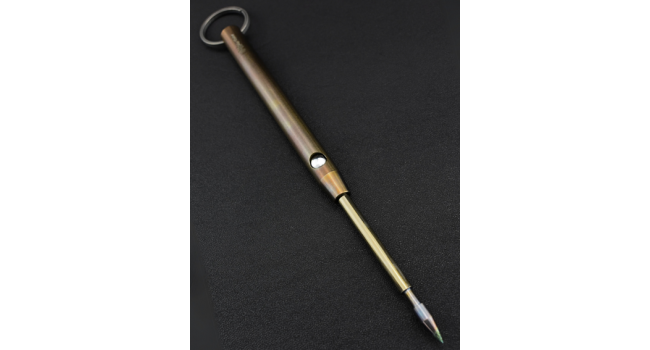Which sharpening method should I choose for my knife?
Sharpening is an essential art for preserving the sharpness and performance of your favorite blades. In this article, we'll explore the main sharpening methods available on the market, along with their respective advantages and disadvantages.
Whether you're a passionate knife enthusiast or a professional looking to improve your sharpening skills, you'll find detailed and useful information here to guide you in your choice.
Each method offers unique features and benefits, and we'll show you everything you need to know to make an informed choice. Get ready to acquire the knowledge you need to sharpen your knives with precision and achieve optimum cutting results.
Diamond sharpening
Diamond sharpening stones are composed of tiny diamond particles distributed on a metal plate. They offer fast, effective abrasive action for sharpening knives.
The advantages of diamond sharpening:
Speed: Diamond sharpening stones quickly remove material from blades, ideal for dull or hard steel knives.
Ease of use: No need for water or oil during sharpening. You can sharpen your knives anywhere, anytime!
Disadvantages of diamond sharpening :
Sensitivity: Do not exert excessive force to avoid damaging the diamond layer.
Ceramic sharpening
Ceramic whetstones consist of aluminum oxide or silicon carbide powder mixed with a binder and pressed into a mold. They offer a precise granulometry and are available in different types.
Advantages of ceramic sharpening :
Precise grain size: Offers consistent, predictable results.
Durable: Ceramic stones are long-lasting and low-maintenance.
Disadvantages of ceramic sharpening:
Delicate choice: The variety of ceramic stones can make it difficult to select the most suitable stone.
Can be aggressive: Some ceramic stones can be too abrasive for delicate blades.
Natural sharpening (natural stones)
Natural stones, such as Novaculite or Coticule, are extracted directly from nature and cut for use as sharpening stones.
The advantages of natural sharpening:
Gentle sharpening: Natural stones remove matter subtly, ideal for delicate sharpening.
Durability: Natural stones are generally long-lasting.
Disadvantages of natural sharpening:
Slow sharpening: The sharpening process can take longer than with synthetic methods.
Variable grain size: The grain size of natural stones can vary, making it difficult to accurately estimate sharpness.
Each sharpening method has its advantages and disadvantages, and the choice will depend on your personal preferences, the type of knife you're sharpening and the desired end result. The efficiency, speed and finesse of sharpening vary according to the method chosen. Take the time to understand the characteristics of each method to achieve optimum results for your knives.
The ease of use and speed of sharpening of diamond sharpening makes it a preferred choice for outdoor enthusiasts looking for foolproof equipment!












Comments:0